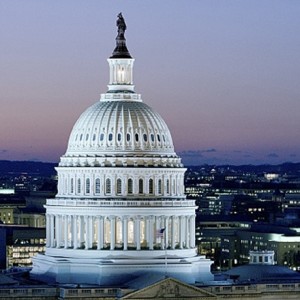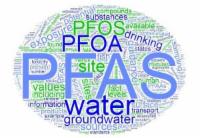![]() The Senate defied the odds this week, voting 92-2 to begin debate on a package of spending bills that includes USEPA’s budget. The action increases the likelihood that the agency will have a final budget by the end of the year. Upon Senate passage, the House and Senate Committees on Appropriations will convene to reconcile differences between the two bills’ spending priorities.
The Senate defied the odds this week, voting 92-2 to begin debate on a package of spending bills that includes USEPA’s budget. The action increases the likelihood that the agency will have a final budget by the end of the year. Upon Senate passage, the House and Senate Committees on Appropriations will convene to reconcile differences between the two bills’ spending priorities.
For CASA, the key discussion will center on infrastructure program funding. The House approved $1.8 billion for the Clean Water SRF, while the Senate approved $1.3 billion. The low interest loan program WIFIA is likely to secure at least $60 million with an expectation that it will support $6 billion in new water infrastructure spending in FY 2020. Despite the differences in spending levels, it appears that the strong support for water infrastructure spending will result in a final agreement that will maintain a strong federal commitment to supporting local agencies’ funding needs. It is anticipated that once the Senate approves the USEPA spending package, it will turn its attention to a second “minibus” that should contain funding for water recycling and other water conservation programs funded by the U.S. Bureau of Reclamation.
 After extended discussions among Committee on Transportation & Infrastructure staff and stakeholders on the parameters of a bill to renew the Clean Water State Revolving Loan Fund Program, the Committee is poised to markup H.R. 1497 the week of October 28. While the final outlines remain to be published, it appears the Committee is prepared to authorize $14 billion over five years to fund the SRF, provide $1 billion over five years for the CSO/SSO grants program, and establish statutory set-aside spending, including authorizing up to 75% federal grants assistance to address CSO and stormwater needs in disadvantaged communities, supporting workforce development, and making green infrastructure assistance a core element of the overall water quality program. In addition to these authorizations, expectations are high that a renewal of the long dormant Alternative Water Source Act, which authorizes USEPA to provide grants to communities to fund water recycling and other conservation projects, will be part of the final legislative agreement. If the committee approves the measure, it will represent the first step in Congress to advance a water infrastructure bill. Because the bill provides for increased spending, the committee will be required to identify offsets for the new spending that remain unknown at this writing. Final congressional action is not expected until next year when the Senate could consider a water infrastructure bill.
After extended discussions among Committee on Transportation & Infrastructure staff and stakeholders on the parameters of a bill to renew the Clean Water State Revolving Loan Fund Program, the Committee is poised to markup H.R. 1497 the week of October 28. While the final outlines remain to be published, it appears the Committee is prepared to authorize $14 billion over five years to fund the SRF, provide $1 billion over five years for the CSO/SSO grants program, and establish statutory set-aside spending, including authorizing up to 75% federal grants assistance to address CSO and stormwater needs in disadvantaged communities, supporting workforce development, and making green infrastructure assistance a core element of the overall water quality program. In addition to these authorizations, expectations are high that a renewal of the long dormant Alternative Water Source Act, which authorizes USEPA to provide grants to communities to fund water recycling and other conservation projects, will be part of the final legislative agreement. If the committee approves the measure, it will represent the first step in Congress to advance a water infrastructure bill. Because the bill provides for increased spending, the committee will be required to identify offsets for the new spending that remain unknown at this writing. Final congressional action is not expected until next year when the Senate could consider a water infrastructure bill.
 House and Senate conferees to the National Defense Authorization Act, which provides direction on how the defense budget is to be spent, continued to attempt to bridge the gulf between the House effort to designate PFAS as a hazardous substance under CERCLA and the Senate’s priority to direct USEPA to determine if the chemicals should be regulated under the Safe Drinking Water Act. Designation of PFAS chemicals as hazardous could potentially expose CASA agencies to unwarranted liabilities, simply because they “received” PFAS contaminated waters or because biosolids might contain de minimis amounts of the chemical. CASA sent the California congressional delegation a statement opposing efforts to designate the chemical as hazardous. CASA urged Congress to rely on science to review and determine the real health threats from the chemical and to ensure that those that generated the chemicals are held responsible. CASA also supports a USEPA rulemaking process to determine the most appropriate approach to treat, manage and dispose of this ubiquitous chemical that is found in consumer products. It appears the deadlock over how to resolve the PFAS policy language, along with other issues central to the nation’s defense programs, may force the conferees to approve a slimmed down package. This package would address vital defense program needs and perhaps authorize funding to address the chemical’s contamination of groundwater supplies in and around military bases, leaving issues like PFAS liabilities to be resolved for another day. Should this occur, USEPA is expected to continue its review and determine how best to regulate these chemicals.
House and Senate conferees to the National Defense Authorization Act, which provides direction on how the defense budget is to be spent, continued to attempt to bridge the gulf between the House effort to designate PFAS as a hazardous substance under CERCLA and the Senate’s priority to direct USEPA to determine if the chemicals should be regulated under the Safe Drinking Water Act. Designation of PFAS chemicals as hazardous could potentially expose CASA agencies to unwarranted liabilities, simply because they “received” PFAS contaminated waters or because biosolids might contain de minimis amounts of the chemical. CASA sent the California congressional delegation a statement opposing efforts to designate the chemical as hazardous. CASA urged Congress to rely on science to review and determine the real health threats from the chemical and to ensure that those that generated the chemicals are held responsible. CASA also supports a USEPA rulemaking process to determine the most appropriate approach to treat, manage and dispose of this ubiquitous chemical that is found in consumer products. It appears the deadlock over how to resolve the PFAS policy language, along with other issues central to the nation’s defense programs, may force the conferees to approve a slimmed down package. This package would address vital defense program needs and perhaps authorize funding to address the chemical’s contamination of groundwater supplies in and around military bases, leaving issues like PFAS liabilities to be resolved for another day. Should this occur, USEPA is expected to continue its review and determine how best to regulate these chemicals.



 @CASA_CleanWater
@CASA_CleanWater